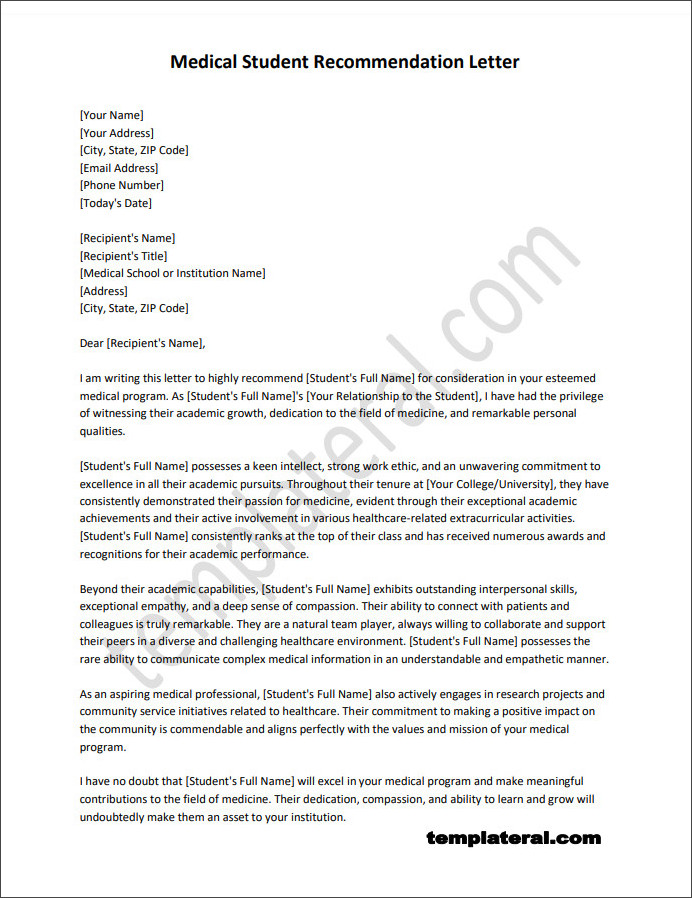
What is a medical student recommendation letter?
A medical student recommendation letter is a document written by a professor, advisor, or supervisor who can attest to the qualities and abilities of a medical student. Medical schools or residency programs typically request it as part of the application process.
The purpose of this letter is to provide a comprehensive and unbiased evaluation of the student’s academic performance, clinical skills, and personal qualities that make them suitable candidates for further medical education or training.
The benefits of a medical student recommendation letter are manifold.
- It offers a third-party perspective on the student’s capabilities and achievements, giving admissions committees valuable insights into the applicant’s potential. These letters often highlight the student’s dedication, work ethic, communication skills, and ability to work effectively in a team, which are crucial qualities for a successful medical career.
- A well-crafted recommendation letter can also help distinguish the student from other applicants, giving them a competitive edge in the selection process.
What should a medical school letter of recommendation say?
When writing a letter of recommendation for a medical school applicant, it is important to include the following key elements:
- Academic performance: The letter should highlight the candidate’s academic achievements, including their GPA, relevant coursework, and any honors or awards they have received. This information helps the admissions committee assess the applicant’s ability to handle the rigorous curriculum of medical school.
- Medical aptitude: It is important to discuss the candidate’s aptitude for the medical profession. This can include their critical thinking, problem-solving skills, ability to work under pressure, and their passion for patient care.
- Personal qualities: The letter should address the applicant’s qualities that make them a strong candidate for medical school. This can include their communication skills, empathy, professionalism, integrity, and commitment to lifelong learning.
- Observations: It is helpful to include specific examples and anecdotes that illustrate the applicant’s qualities and accomplishments. This can give the admissions committee a more comprehensive understanding of the candidate’s abilities and potential.
- Comparison: If possible, comparing the applicant to their peers or other students you have encountered is beneficial. This can provide context and help the admissions committee gauge the candidate’s relative strengths and weaknesses.
- Conclusion: The letter should conclude with a strong endorsement of the candidate’s suitability for medical school. It should summarize the main points discussed and express confidence in the applicant’s ability to succeed in their medical education and future career.
Writing a comprehensive and well-crafted letter of recommendation for a medical school applicant is essential in helping them stand out among a competitive pool of candidates. By including the above elements, the letter can effectively showcase the applicant’s academic achievements, medical aptitude, personal qualities, and potential for success in the medical profession.